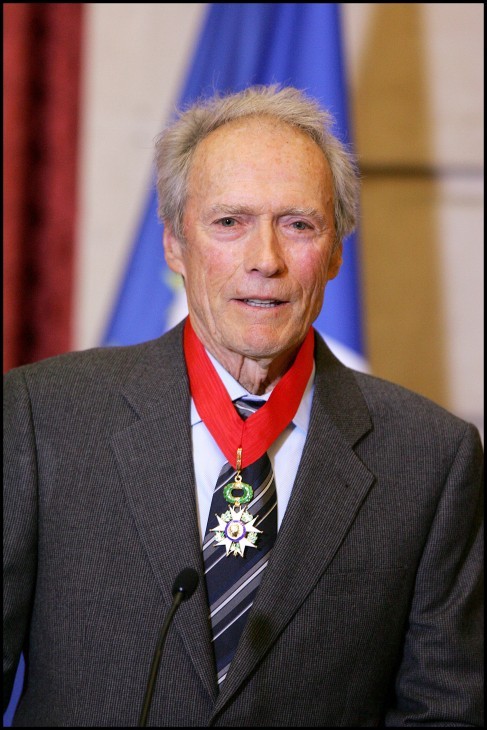Clint Eastwood, a name synonymous with cinematic excellence, has also carved out a significant place in the world of politics. Known for his iconic roles on the silver screen, Eastwood's journey into the political arena began much earlier than many might realize. His involvement in local government and national politics showcases a man who is not only concerned about entertainment but also about the governance and future of his country.
Eastwood's political journey is as intriguing as his filmography. From his early days as a mayor of Carmel-by-the-Sea to his vocal endorsements in presidential elections, Eastwood has consistently demonstrated a commitment to public service and civic responsibility. This article delves into Clint Eastwood's political evolution, exploring how his views have shaped and influenced American politics over the years.
Clint Eastwood: The Small-Town Politician
No other celebrity politician epitomized small-town politics better than Clint Eastwood. The Oscar-winning director and Dirty Harry star ran for office and served as the mayor of Carmel-by-the-Sea from 1986 to 1988. During his tenure, he focused on preserving the town's natural beauty and limiting commercial development, reflecting his deep-rooted environmental values.
Eastwood's mayoral run was marked by a desire to protect the unique character of Carmel. He championed policies that prioritized conservation over profit, aligning with his personal ethos of sustainability. His leadership style emphasized community engagement and open dialogue, setting a precedent for future leaders in the area.
By stepping into the political spotlight, Eastwood demonstrated that celebrities could contribute meaningfully to local governance. His term as mayor showcased his ability to balance artistic pursuits with public service, earning him respect both within the town and beyond.
Clint Eastwood's Political Endorsements
Clint Eastwood is known as a Hollywood conservative, somewhat of a rarity in an industry often criticized for its liberal leanings. Despite his conservative reputation, Eastwood surprised many when he appeared to endorse a Democratic challenger over Donald Trump for the presidency. This move highlighted his independent streak and willingness to cross party lines based on principle.
In 2012, Eastwood made headlines with his memorable appearance at the Republican National Convention, where he delivered a speech addressing an empty chair meant to represent President Barack Obama. However, his later endorsement of a Democrat underscored his pragmatic approach to politics, focusing on issues rather than party affiliation.
This shift in support exemplifies Eastwood's belief in evaluating candidates based on their policies and integrity rather than adhering strictly to party loyalty. It reinforces his image as a thoughtful voter who considers each election on its own merits.
Clint Eastwood's Views on Modern Politics
Actor-director Clint Eastwood, now in his nineties, continues to weigh in on contemporary political issues, including those surrounding Bloomberg, Trump, and movements like #MeToo. In interviews, he has expressed concerns about the divisive nature of modern politics and the need for bipartisan cooperation.
Eastwood's comments often reflect a desire for civility and compromise in political discourse. He advocates for solutions that prioritize the common good over partisan interests, echoing themes present in many of his films. His perspective offers a bridge between generations, blending traditional values with progressive ideals.
As a veteran of both the entertainment and political worlds, Eastwood brings a unique voice to discussions about the state of American politics. His insights serve as a reminder of the importance of engaging thoughtfully with the political process.
Clint Eastwood's Libertarian Leanings
I'm not a loyalist to any party. I'm only a loyalist to the country, Eastwood's best-known statement of his libertarian leanings appeared in a 2004 interview. This declaration encapsulates his belief in limited government intervention and individual freedoms, core tenets of libertarian philosophy.
Throughout his career, Eastwood has supported candidates from both major parties, indicating a flexible approach to politics. His voting record includes backing Democrats like Gray Davis and Republicans such as Ronald Reagan, illustrating his focus on specific issues rather than party allegiance.
This independence allows Eastwood to engage critically with political platforms, advocating for policies that align with his principles regardless of party labels. His stance serves as an example for voters seeking to navigate the complexities of modern politics.
Clint Eastwood's Legacy in Politics
Clint Eastwood's politics, if one were to reduce them to a label, would be libertarian. This term captures his belief in minimal government interference and maximum personal freedom. While some may pigeonhole him as a conservative Republican, Eastwood's actual views are more nuanced and multifaceted.
The films of Clint Eastwood often explore themes relevant to current political debates, speaking to audiences across generations. Through his work, he addresses issues ranging from justice and morality to identity and power, offering commentary that resonates deeply with viewers.
As a cultural icon, Eastwood's influence extends beyond the screen, shaping public discourse and encouraging critical thinking about political values. His legacy in politics lies in his ability to inspire others to consider alternative perspectives and engage actively in the democratic process.

